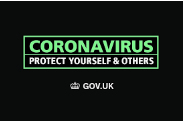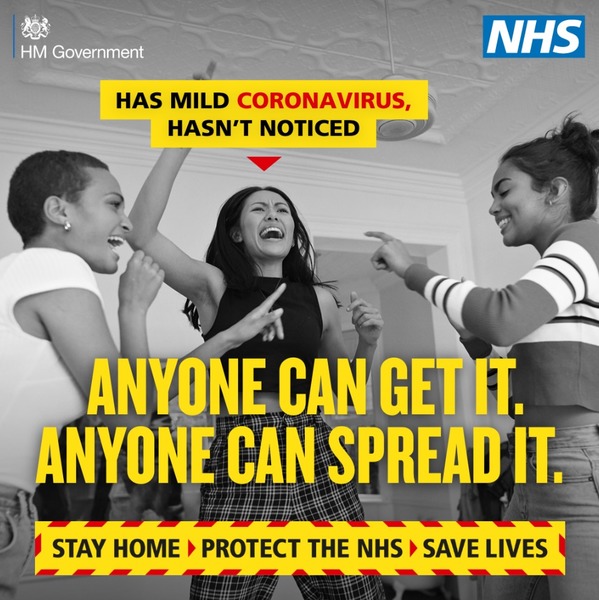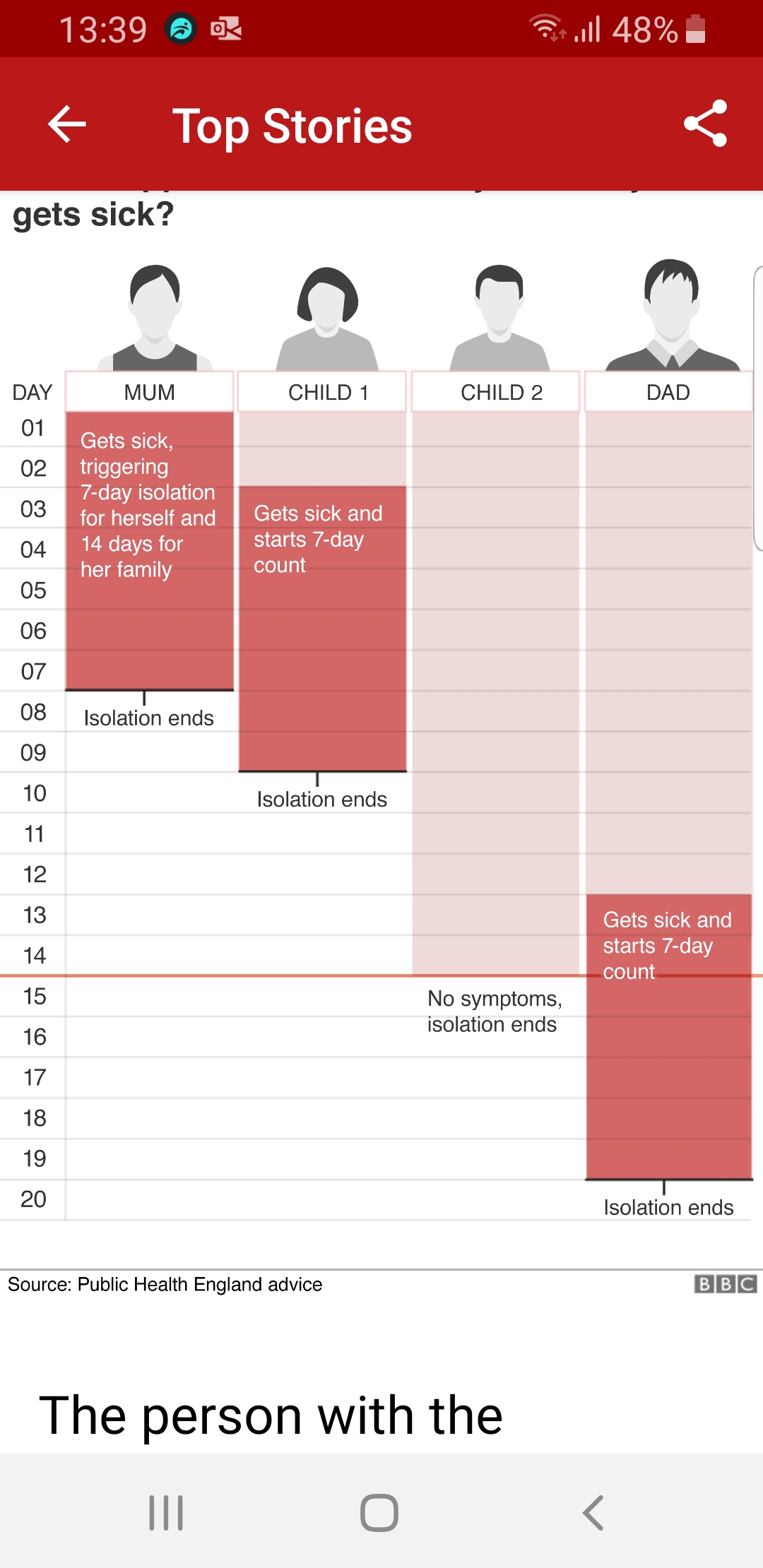Guidance
Guidance for schools - updated 18/06/2020

Guidance for schools: coronavirus (COVID-19)
What school leaders, teachers and school staff need to do during the coronavirus (COVID-19) outbreak.
Public Health England - COVID-19 flow chart

Prevent the spread of infection by maintaining high standards of hygiene, including hand washing and regular cleaning and disinfection of surfaces. This will help prevent COVID-19 spreading in schools, as well as other infectious diseases. If you have any infection control concerns or questions please call the South West Health Protection Team on 0300 303 8162. If the matter is not urgent you can also email swhpt@phe.gov.uk. GUIDANCE: Visit gov.uk/coronavirus for detailed schools guidance and other guidance TESTING: Visit nhs.uk/ask-for-a-coronavirus-testContact . Click here to view the flow chart. 10/06/2020
FAQs: Schools and educational settings v3 (24/05/2020)
FAQs: For primary schools (08/06/20)
COVID-19 Checklist (09/06/2020)
Click here to view the checklist for COVID-19 case and outbreak management in Educational Settings
EDUCATIONAL AND CHILDCARE SETTINGS: PREPARING FOR WIDER OPENING FROM 1 JUNE 2020
- PM ADDRESS TO THE NATION ON CORONAVIRUS (GOV.UK, 10 May 2020: speech)
- OUR PLAN TO REBUILD: THE UK GOVERNMENT’S COVID-19 RECOVERY STRATEGY (11 May: guidance)
- OVERVIEW OF SCIENTIFIC INFORMATION ON COVID-19 (15 May: correspondence)
- EDUCATION SECRETARY'S STATEMENT ON COVID-19 (16 May: speech)
- CORONAVIRUS OUTBREAK FAQS: WHAT YOU CAN AND CAN'T DO (GOV.UK, 11 May: guidance)
- STAYING SAFE OUTSIDE YOUR HOME (11 May: guidance)
- HOW TO WEAR AND MAKE A CLOTH FACE COVERING (11 May: guidance)
- PREPARING FOR THE WIDER OPENING OF SCHOOLS FROM 1 JUNE (14 May: guidance)
- DETAILS ON PHASED WIDER OPENING OF SCHOOLS, COLLEGES AND NURSERIES (11 May: press release)
- ACTIONS FOR EDUCATIONAL AND CHILDCARE SETTINGS TO PREPARE FOR WIDER OPENING FROM 1 JUNE 2020 (updated 12 May: guidance)
- OPENING SCHOOLS FOR MORE CHILDREN AND YOUNG PEOPLE: INITIAL PLANNING FRAMEWORK FOR SCHOOLS IN ENGLAND (12 May: guidance)
- SAFE WORKING IN EDUCATION, CHILDCARE AND CHILDREN’S SOCIAL CARE (14 May: guidance)
This should be read ‘in conjunction with the ‘COVID-19: implementing protective measures guidance (below).
- COVID-19: IMPLEMENTING PROTECTIVE MEASURES IN EDUCATION AND CHILDCARE SETTINGS (11 May: guidance)
- STAYING ALERT AND SAFE: SOCIAL DISTANCING (11 May: guidance)
- COVID-19: GUIDANCE ON SHIELDING AND PROTECTING PEOPLE DEFINED ON MEDICAL GROUNDS AS EXTREMELY VULNERABLE (updated 5 May: guidance)
DEPARTMENT FOR EDUCATION / PUBLIC HEALTH ENGLAND
COVID-19: GUIDANCE FOR EDUCATIONAL SETTINGS (updated 15 May 2020: guidance)
COVID-19 GUIDANCE FOR SCHOOLS AND OTHER EDUCATIONAL SETTINGS [COLLECTION]
OVERARCHING GUIDANCE FOR EDUCATIONAL SETTINGS
- Actions for schools during the coronavirus outbreak (updated 18 May: guidance)
‘Updated section 19.4 to clarify how meetings should proceed.’ Includes also links to: ‘social distancing’ (see below); and COVID-19: guidance on shielding and protecting people defined on medical grounds as extremely vulnerable.
- Staying alert and safe: social distancing (11 May: guidance)
- Actions for educational/childcare settings to prepare for wider opening from 1 June (updated 12 May: guidance)
- Opening schools for more children and young people: initial planning framework for schools in England
(12 May: guidance)
- Details on phased wider opening of schools, colleges and nurseries (11 May: press release)
- Actions for early years and childcare providers during the coronavirus outbreak (updated 18 May: guidance)
- Actions for FE colleges and providers during the coronavirus outbreak (updated 14 May: guidance)
- COVID-19: apprenticeship programme response (updated 19 May: guidance)
‘Updated with information on training and assessing apprentices in line with the government’s new safer working guidelines, calculating wages for furloughed apprentices, off-the-job training, and redundant apprentices.’
- Actions for HE providers during the coronavirus outbreak (4 May: guidance)
- COVID-19: guidance for children's social care services (updated 6 May: guidance)
COVID-19 INFECTION PREVENTION AND CONTROL
- COVID-19: implementing protective measures in education and childcare settings (updated 12 May: guidance)
- COVID-19: guidance on isolation for residential educational settings (updated 8 April: guidance)
- COVID-19: guidance for educational settings (updated 18 May: guidance)
This guidance should be read in conjunction with the guidance on implementing social distancing in education and childcare settings.
SUPPORTING VULNERABLE CHILDREN AND YOUNG PEOPLE
- COVID-19: safeguarding in schools, colleges and other providers (27 March 2020: guidance)
- Supporting vulnerable children and young people during the coronavirus outbreak (updated 15 May: guidance)
GUIDANCE ON SPECIFIC SUBJECTS
- Remote education during COVID-19 (updated 5 May: guidance)
- Safeguarding and remote education during COVID-19 (19 April: guidance)
- Remote education practice for schools during COVID-19 (5 May: guidance)
- Get technology support for children and schools during COVID-19 (updated 4 May: guidance)
- COVID-19: SEND risk assessment guidance (updated 7 May: guidance)
- Critical workers who can access schools or educational settings (updated 14 May: guidance)
- Providing FSM during the coronavirus outbreak (updated 15 May: guidance) [FSM press release: 31 March]
- COVID-19: cancellation of GCSEs, AS and A levels in 2020 (updated 1 May: guidance)
- COVID-19: travel advice for educational settings (updated 5 May: guidance)
- COVID 19: online education resources (updated 13 May: guidance)
- Managing school premises during the Coronavirus outbreak (updated 18 May: guidance)
FINANCE AND ADMINISTRATION
- COVID-19: financial support for schools (7 April: guidance)
- Procurement Policy Note 02/20: Supplier relief due to COVID-19 (13 May: guidance)
- COVID-19: financial support for education, early years and children’s social care (updated 22 April: guidance)
- Use of free early education entitlements funding during the coronavirus outbreak (28 April: guidance)
- COVID-19: school and college performance measures (8 April: guidance)
- COVID-19: reducing burdens on educational and care settings (20 April: guidance)
INITIAL TEACHER TRAINING (ITT) AND NEWLY QUALIFIED TEACHERS (NQTs)
- COVID-19: initial teacher training (7 April 2020: guidance)
- COVID-19: induction for newly qualified teachers (updated 1 May: guidance)
WHAT PARENTS AND CARERS NEED TO KNOW ABOUT SCHOOLS AND EDUCATION DURING THE CORONAVIRUS OUTBREAK (updated 11 May: guidance)
COLLECTION:
Case studies: remote education practice for schools during COVID-19 (5 May: guidance)
- Supporting pupils’ wellbeing (5 May: guidance)
- Adapting teaching practice for remote education (5 May: guidance)
- Adapting the curriculum for remote education (5 May: guidance)
- Keeping pupils motivated and engaged (5 May: guidance)
MODIFICATION NOTICE: EHC PLANS LEGISLATION CHANGES (30 April: decision)
- CHANGES TO THE LAW ON EDUCATION, HEALTH AND CARE NEEDS ASSESSMENTS AND PLANS DUE TO CORONAVIRUS (30 April: guidance)
- SEND CODE OF PRACTICE: 0 TO 25 YEARS (updated 30 April: statutory guidance)
SCHOOL ATTENDANCE: GUIDANCE FOR SCHOOLS (updated 30 April: guidance)
SCHOOL BEHAVIOUR AND ATTENDANCE: PARENTAL RESPONSIBILITY MEASURES (updated 30 April: guidance)
COVID-19: ATTENDANCE IN EDUCATION AND EARLY YEARS SETTINGS (updated 19 May: transparency data)
‘COVID-19 attendance in education settings data and added attendance in education settings: 15 May 2020 summary.’
COVID-19: ATTENDANCE RECORDING FOR EDUCATIONAL SETTINGS (updated 3 April 2020: guidance)
EARLY YEARS FOUNDATION STAGE: CORONAVIRUS DISAPPLICATIONS (24 April: statutory guidance)
USING CLUSTERS AND HUBS TO MAINTAIN EDUCATIONAL PROVISION (24 April: guidance)
MULTI-MILLION SUPPORT FOR VULNERABLE CHILDREN DURING COVID-19 (24 April: press release)
SCHOOLS TO BENEFIT FROM EDUCATION PARTNERSHIP WITH TECH GIANTS (24 April: press release)
COUNCILS GIVEN FLEXIBILITY WITH FREE CHILDCARE FUNDING (23 April: press release)
SUPPORTING YOUR CHILDREN'S EDUCATION DURING COVID-19 (19 April: guidance)
Specific advice on how education can continue at home:
- Help children aged 2-4 to learn at home during COVID-19;
- Help primary school children continue their education during COVID-19; and
- Help children with SEND continue their education during COVID-19.
ADMISSION APPEALS FOR SCHOOL PLACES (14 April: guidance)
COVID-19: KEEPING CHILDREN SAFE ONLINE (14 April: guidance)
SCHOOLS, COLLEGES AND EARLY YEARS SETTINGS TO CLOSE (18 March 2020: press release)
GUIDANCE FOR SCHOOLS ABOUT TEMPORARILY CLOSING (updated 9 April: guidance)
COVID-19 ADOPTION SUPPORT FUND SCHEME TO HELP VULNERABLE FAMILIES (10 April: press release)
SCHOOL GOVERNANCE UPDATE (updated 15 April: correspondence)
GLOUCESTERSHIRE COUNTY COUNCIL: key contacts
Clare Medland: Head of Commissioning for Learning
Deborah Peake: Education Planning Officer
Cathy King: Delivery Grounds/Contracts Manager, Asset Management and Property Services
Allana Whelan: Traded Services and Customer Engagement Manager, Business Service Centre
Adam Barnes: Head of Communications and Communications Service
Tom Main: Transport Operations Manager, C&I Integrated Transport Unit
Debbie Innes (DHT Widden Primary): can support schools to fulfil DSL function: (mobile 07778046453)
Lisa Tandy: Nurse Trainer, Gloucestershire Health and Care NHS Foundation Trust (mobile 07980703340)
OTHER KEY CONTACTS
Public Health England: 0300 303 8162
The DfE has a ‘dedicated helpline for parents, teaching staff and education leaders to provide advice and support on coronavirus. This line complements the advice being provided by Public Health England. The helpline (0800 046 8687) will be open Monday-Friday (8:00 am – 6:00 pm).’
GUIDANCE FROM PROFESSIONAL BODIES
NAHT: Coronavirus guidance for school leaders
NASUWT: Operational Advice
Our plan to rebuild: The UK Government’s COVID-19 recovery strategy
The Government’s roadmap for how and when the UK will adjust its response to the COVID-19 crisis.
This document describes the progress the UK has made to date in tackling the coronavirus (COVID-19) outbreak, and sets out the plans for moving to the next phase of its response to the virus.
The strategy sets out a cautious roadmap to easing existing measures in a safe and measured way, subject to successfully controlling the virus and being able to monitor and react to its spread. The roadmap will be kept constantly under review as the epidemic, and the world’s understanding of it, develops.
Documents
Our plan to rebuild: The UK Government’s COVID-19 recovery strategy
Education unions have demanded schools can not reopen until a national coronavirus track and trace scheme is rolled out.
Unions: national track and trace scheme needed before schools re-open (Schools Week, 09.05.20)
Co-ordinated by the TUC, a joint letter to Gavin Williamson from NEU, NASUWT and NAHT (ASCL not affiliated to the TUC). The letter outlines ‘key principles’ that must be met before schools re-open, including a national ‘track and trace’ scheme in place.
This is an adaptation of the new Stay Home, Save Lives creative to target specific ages.
Age Specific - Anyone Can Spread It - Updated 8th April 2020

Please be aware that this is an evolving situation and public advice may change. Materials will be updated and changed as appropriate so please check for the latest version.
For further information please visit the NHS website and the GOV webpage.
Examples of emerging contingency planning/practice
https://www.youtube.com/watch?v=R9AgQso9p2w
Advice on Covid-19 and Staff Absence
**HR are producing FAQ’s for schools relating to COVID-19. It is available on schoolsnet please log via https://www.gloucestershire.gov.uk/covid-19-information-and-advice/
As you will be aware the national advice has changed regarding social distancing, self-isolation and working from home. As a result we would like to provide further advice on working arrangements.
Key principles are:
- Any member of staff exhibiting symptoms of COVID-19 should inform their manager and self-isolate for 7 days.
- If a member of staff comes into contact with someone who has symptoms of COVID-19, then they should inform their manager and self-isolate for 14 days.
- Any member of staff in one of the government’s highlighted ‘at risk’ categories (over 70, underlying health conditions or pregnant) are being strongly encouraged to work from home if possible, and socially distance themselves until further notice.
Members of staff of Local Authority maintained schools who fall under the government’s guidelines to self-isolate, will be paid full pay. HR is advising academies to do the same, but the decision on this will ultimately be for the academy or Trust.
If staff are self-isolating because they have come into contact with someone with COVID-19 symptoms but are not unwell themselves, they may be expected to work from home when this is possible. If this is not possible for them, they should still stay at home to avoid the potential transmission of infection, and will be paid full pay.
We have produced some FAQs on the questions that may be raised in response to the new guidance.
Finally I’m sure you’ve all seen the advice regarding self-isolation, please observe these guidelines stringently and as ever advise staff to continue to wash their hands regularly.
We will continue to update you regularly as the situation changes.
- Continuing existing interventions and offering new interventions by phone or online.
- Triaging referrals as usual but carefully considering these in the context of staff availability.
- Offering school staff a dedicated helpline or CAMHS/VCS duty number to call.
- Developing protocols with schools for offering online/phone services.
- Ensuring online/phone calls/sessions are recorded on existing databases (e.g. IAPTUS).
- Using or purchasing software (Telegram, Zoom, TEAMS) to provide remote support and considering in context of school staff and children and parents/carers’ access to technology/software.
- There are concerns about families being able to access a safe, quiet space at home for sessions and/or having the right technology; as well as staff absence leading to a disrupted/paused service.
- Issuing a questionnaire to or calling school staff to ascertain what support they need at this time.
- Collating and circulating resources to school leads.
- Considering how to develop advice in more detail for parents/carers (e.g. examples of daily activities or routines).
- Considering whether to set up a working group/virtual network of project leads, MHST managers and staff to share learning and practice and develop resources. [NB. If you’re interested in this – and/or in setting up a virtual network of senior mental health leads and MHST coordinators - please do let us know.]
- Liverpool CAMHS has collated resources to support children and young people and parents and carers here (you’ll need Microsoft Edge, Google Chrome or similar to access it though).

Tagged under: Coronavirus
Was the information on this page helpful? 


